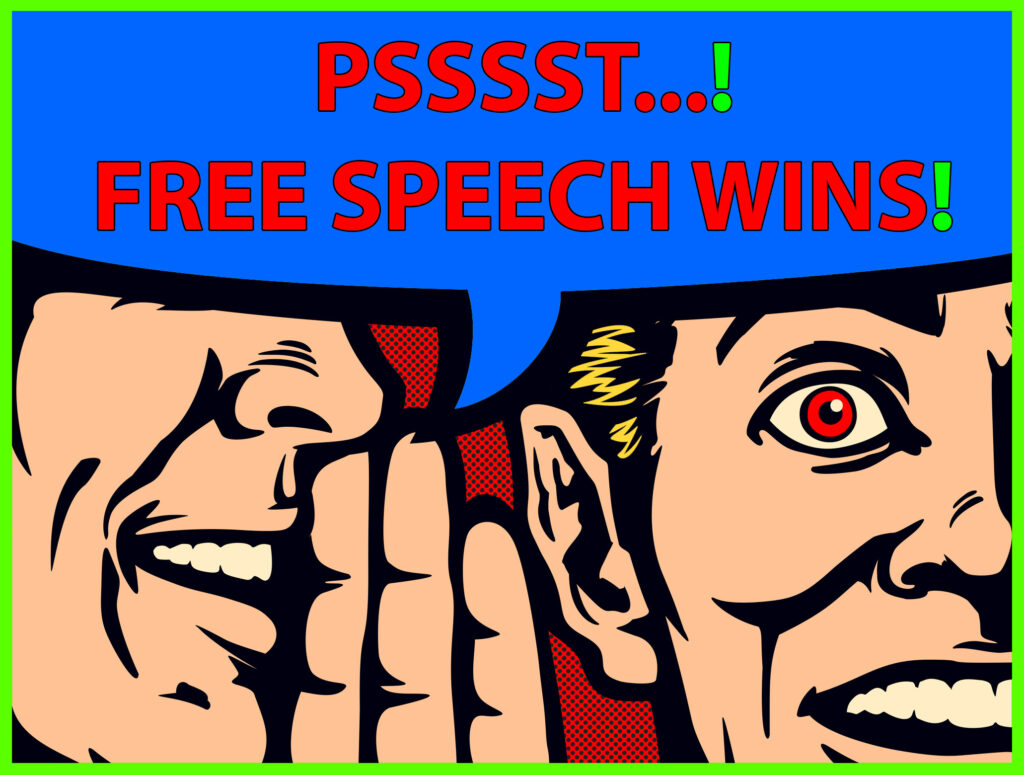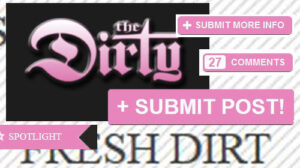
Appeals Court Overturns Decision on TheDirty.com in a Win For Free Speech
Jones v. Dirty World Entertainment

The Sixth Circuit Court of Appeals issued a decision today in Jones v. Dirty World Entertainment, a case in which the ACLU filed an amicus brief alongside other organizations urging the Sixth Circuit to reverse a lower court’s decision holding a website and its editor accountable for defamatory posts submitted by the website’s users. (Here is our prior blog post explaining the case, and the website itself, TheDirty.com.)
The lower court had held that by “encouraging” negative content, the website could be held liable when its users went beyond critical and posted something unlawful. We argued this result was wrong and very dangerous for all kinds of valuable online speech, including online reviews and other consumer-driven sites. Think, for example, of a consumer protection website that encourages users to submit reports of defective products, or a website where users can share stories about companies filing aggressive “take-down” letters demanding that speech be removed from the internet.
Our amicus reminded the court to remember the incredible public value in this kind of negative or critical speech; it’s certainly not something you’re going to get from the companies themselves. And it’s only if websites offer platforms for this kind of critical speech that consumers can speak, listen, and connect to get this kind of information.
 Today, the Sixth Circuit, in a “case of first impression in this Circuit,” agreed with our arguments, and recognized the importance of websites that allow and even encourage “critical” content. The court noted:
Today, the Sixth Circuit, in a “case of first impression in this Circuit,” agreed with our arguments, and recognized the importance of websites that allow and even encourage “critical” content. The court noted:
Some of this content will be unwelcome to others—e.g., unfavorable reviews of consumer products and services, allegations of price gouging, complaints of fraud on consumers, reports of bed bugs, collections of cease-and-desist notices relating to online speech….Under an encouragement test of development, these websites would lose the immunity under the CDA and be subject to hecklers’ suits aimed at the publisher.
The Sixth Circuit’s opinion rightly recognizes the essential value of user-submitted online speech, including critical speech that helps consumers and reviewers connect and share their experiences. Today’s decision reaffirms the importance of that speech to a free and robust internet, and ensures that websites can offer spaces for community criticism without risking constant litigation over the comments of its users.
Freedom of Speech Wins Again

Section 230 of the Communications Decency Act immunizes websites from legal liability for the comments of their users. When Congress enacted Section 230, it wisely recognized that holding websites legally responsible for user-generated content would cripple the rapidly developing online world. Section 230 defines Internet culture as we know it: It’s the reason why websites can offer platforms for critical and controversial speech without constantly worrying about getting sued.
The vast majority of courts have honored Section 230’s robust immunity, but sometimes courts are tempted to hold “distasteful” websites responsible for the speech of their users. When that happens, the ACLU continues to defend Section 230’s protections for websites that offer platforms for user speech.
(Updated below)
We’ve written before about Section 230 of the Communications Decency Act of 1996 — a federal law that protects the robust diversity of free speech we’ve come to know and love (and hate) on the Internet. Last night, the ACLU and the ACLU of Kentucky had a chance to put our money where our mouth is. We filed a friend of the court brief on behalf of the user-generated gossip website TheDirty.com (warning: not just a clever name) and its publisher Nik Richie, who were recently — and wrongly — held legally responsible for someone else’s internet trolling. Our brief, filed alongside a star–spangled list of organizations dedicated to free speech, argues that the decision could be a disastrous precedent for Internet speech.
Section 230, which immunizes websites from legal liability for the comments of their users, defines Internet culture as we know it. You know how you could, if you were so inclined, go on Yelp and trash a business? Section 230 ensures that if you lie, and the company sues you for defamation, you’re on the hook for lying, not Yelp. Similarly, if you use Facebook to harass someone — don’t do that, by the way — Facebook doesn’t become the defendant; you do.
When Congress enacted Section 230, it wisely recognized that holding every website legally responsible for user-generated content would cripple the rapidly developing online world. Section 230 liberates websites from the chilling effect caused by the fear of being sued every time an Internet user exercises bad judgment.
The vast majority of courts have honored Section 230’s robust immunity. But a court recently bucked this principled tradition when faced with the salacious set of facts in this case.
TheDirty.com is probably best known for its role in breaking the latest Anthony Weiner scandal. In 2009, the site posted an anonymously submitted story stating that Sarah Jones, a high school teacher and Cincinnati Bengals cheerleader, slept with the entire Bengals team. A second post alleged Jones had sex with her husband in her classroom and had STDs. TheDirty.com’s publisher, Nik Richie, then added his own fateful commentary at the bottom of this post: “Why are all high school teachers freaks in the sack? – nik.”
Jones then filed a lawsuit against Richie and the site, claiming the two posts alleging she had STDs were defamatory. To be clear, the posts accusing Jones of having STDs and sleeping with the team were absolutely defamatory. But Jones didn’t sue the person who wrote the posts. She sued TheDirty.com and Richie for hosting them.
The defendants claimed that Section 230 provided immunity because those posts were authored by a third party, but the judge (incorrectly) disagreed. He held, basically, that Richie was asking for it, due to the name of the site, Richie’s general “encouragement” of gossip, and his “adoption” of the anonymous defamation by wondering aloud why teachers are freaky. (It’s important to note that asking why all teachers are freaky is absolutely not itself defamatory, and no one in this case claimed otherwise.) The judge then instructed the jury that Richie was on the hook for the anonymous poster’s defamation of Jones; the jury awarded her $338,000 in damages. (Interestingly, this took two jury trials — the first jury couldn’t reach a verdict after hearing about Jones’ intervening felony conviction for having sex with one of her students.)
The judge was flat wrong on the law. But this decision is even worse public policy. That’s because the essence of the trial court’s judgment was that by seeking critical, disparaging speech (gossip), Richie and TheDirty.com were actively seeking unlawful speech (defamation), and didn’t deserve immunity. But dirt simply doesn’t equal defamation. And equating the two would be disastrous for other sites that offer a wide array of extremely valuable speech.
For example, consumer watchdog sites encourage users to submit reports of corporate malfeasance — speech that is inherently critical, disparaging, even damaging for the companies complained about. But Fraud.org is clearly a great public service, not a hub for criminal activity. Similarly, environmental activists at sites like Frack Check WV invite users to submit horror stories about fracking in their communities; the Bed Bug Registry asks users to report bed bug infestations.
These sites, just like TheDirty.com, solicit and collect (truthful) negative commentary that could absolutely ruin a business or individual’s reputation. They rely on user-generated content to populate their sites, and sometimes react to it as though it’s true. Their users, like anyone else on the net, and like the anonymous troll on TheDirty.com, might lie. And Section 230 places the consequences for those lies squarely on the shoulders of the liar — not the website that hosted the speech just because it waded into critical waters.
But the Jones decision threatens to turn every troll’s comments into a lawsuit that a website will have to defend.
It’s important this decision is overturned, not only for these defendants, but for every website offering platforms for user speech, especially critical speech. This decision risks eroding the certainty websites currently enjoy that they won’t spend every day litigating over their comment section. We proudly join the chorus of voices asking the appeals court to overturn it.
Update (June 16, 2014):
Appeals Court Overturns Decision on TheDirty.com in a Win For Free Speech
